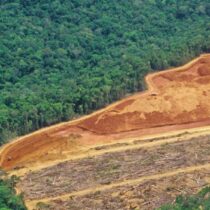Welsh ‘Brexit & Our Land’ consultation could see landscapes without livestock
The Welsh Government has launched it’s own version of the ‘Health & Harmony’ consultation, called ‘Brexit and our Land’, as a first step towards a new, more environmentally focused agricultural policy.
Part of this will be to incentivise farmers to reduce production levels in favour of delivering ‘public goods’. If this happens, we could see a squeeze in domestic food supply and an increased reliance on imports. This could disrupt the local food supply chain and severely affect Welsh abattoirs and processors.
More so than in England, the proposed policy changes could have proportionally more serious and possibly devastating consequences for the thousands of people employed in and around the Welsh red meat industry. A much larger percentage of Welsh people depend on the industry for their livelihood.
The significance of the meat and livestock industry to Wales is highlighted by the fact that Wales has 30% of the UK’s sheep herd but accounts for only 5% of Britain’s population. Wales relies heavily on its ability to sell to other countries. About 82% of Welsh beef and 60% of sheep meat are consumed by the rest of the UK. About 24% of sales by value are exported outside the UK (predominantly to the EU) and play a key role in balancing the whole carcase.
Funding Welsh agriculture
Agricultural budgets, but more importantly how that funding is allocated, have a huge effect on the shape of the Welsh livestock and meat industries. More than 80% of Welsh farming income derives from EU funding (far in excess of the UK average of between 35 and 56%).
Indeed, 80% of Welsh farmland is classified as ‘less favoured’, being of lower fertility and more limited potential to generate economic returns, hence the higher subsidies.
The new post-Brexit agricultural policy could have a potentially severe effect on production and profitability with livestock farms being more exposed than elsewhere in the UK. And, this is only half the picture. Any future trade deals run the risk of undermining our own world-leading domestic production system in favour of cheaper imported product that bypasses Welsh production plants.
If livestock production drops, it would leave the meat processing companies (and the communities of workers) that rely on a consistent supply of local lamb and beef facing closures and a loss of those local industries.
At the Royal Welsh Show next week the British Meat Processors Association (BMPA) will be joining forces with NFU Cymru in a call to Welsh Government to ensure that the importance of red meat production in Wales is fully recognised in the design of future agricultural policy.






